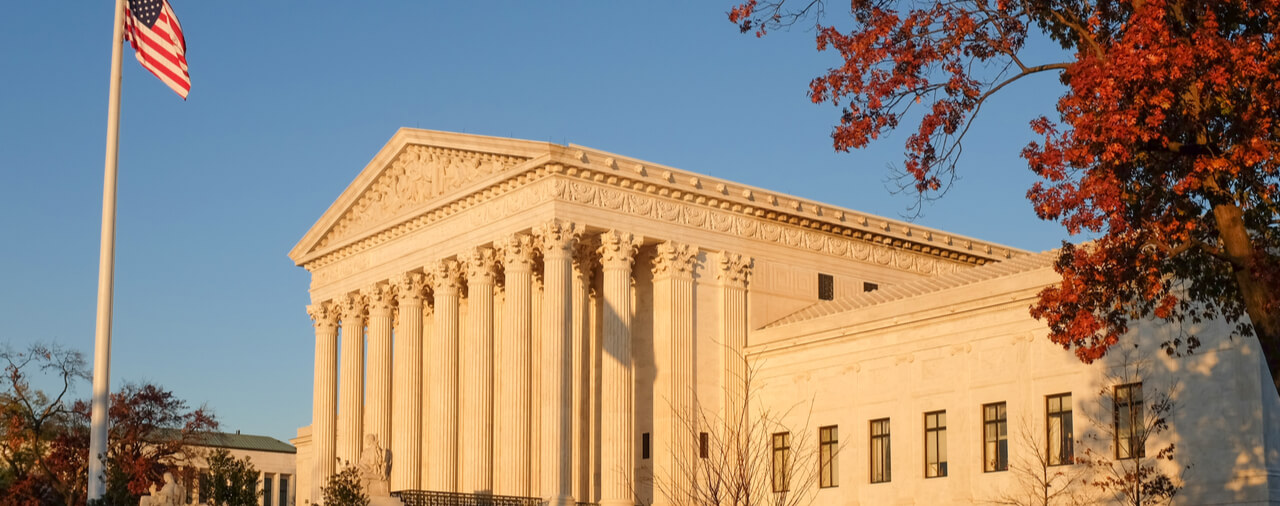On June 26, 2017, the Supreme Court of the United States allowed parts of President Donald Trump’s March 6, 2017, Executive Order 13780 titled “Protecting the Nation From Foreign terrorist Entry Into the United States” — which had been enjoined by the United States Courts of Appeals for the Fourth and Ninth Circuits — to take effect. Subsequent to that decision, the Trump Administration interpreted the Supreme Court opinion to implement the previously enjoined provisions of section 2 and section 6 of the Executive Order.
Before continuing, please see our articles on the initial Supreme Court opinion [see article] and the Trump Administration’s implementation (updated) [see article]. Furthermore, please see our full articles to learn about the suspension of entry [see article] and suspension of refugee travel [see article] provisions of the Executive Order.
Hawaii challenged multiple aspects of the Trump Administration’s implementation of Executive Order in 13780. Ultimately, Judge Derrick Watson of the United States District Court for the District of Hawaii — who had issued the first injunction against parts of Executive Order 13780 — issued an injunction regarding the Trump Administration’s narrow interpretation of “close familial relationship” [see section]. Furthermore, Judge Watson also determined that refugees for whom there was a sponsorship agreement between the government and a refugee resettlement agency for their eventual resettlement were covered by the injunction.
The Department of Justice (DOJ) appealed to the United States Court of Appeals for the Ninth Circuit, which has jurisdiction over Hawaii. Concurrently, the DOJ applied to the Supreme Court, asking it to stay or vacate Judge Watson’s order and for clarification of the scope of the injunction.
On July 19, 2017, the Supreme Court gave each side a partial victory [PDF version]. First, the Supreme Court declined to clarify its June 26 order with regard to the definition of “close familial relationship” while the Ninth Circuit considers the issue [see section]. This effectively leaves Judge Watson’s broader reading of the phrase in place for the time being. It is worth noting that the Trump Administration was already complying with Judge Watson’s order.
However, the Supreme Court stayed the aspect of Judge Watson’s decision dealing with refugees pending the Trump Administration’s appeal to the Ninth Circuit. Accordingly, an agreement between the government and a refugee resettlement agency to sponsor a refugee is not a qualifying relationship under the injunction for the time being.
Justices Clarence Thomas, Samuel Alito, and Neil Gorsuch would have put Judge Watson’s order on hold in its entirety pending appeal before the Ninth Circuit, allowing the Trump Administration to enforce Executive Order 13780 against a broader group of persons with family relationships to U.S. citizens. This is unsurprising in light of the fact that these same Justices dissented in part from the June 26 order, holding then that they would have stayed the lower court injunctions against Executive Order 13780 in full [see section].
It is worth noting that also on July 19, 2017, the Supreme Court scheduled Trump v. International Refugee Assistance Project, No. 16-1436 and Trump v. Hawaii, No. 16-1540 for oral argument on October 10, 2017 [PDF version].
We will continue to update the site with more information as the litigation on Executive Order 13780 continues. For now, we must wait for the Ninth Circuit to consider the DOJ’s appeal from Judge Watson’s decision in the Hawaii District Court. Please see our full article on the current implementation of the Executive Order for more information [see article].





